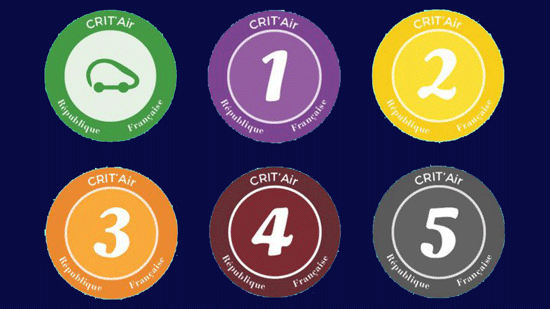When you’re researching how to register your British registered vehicle in France, you will notice that two documents are frequently mentioned: the Certificat de Conformité and the Contrôle Technique. One or both are essential, depending on what type and age of vehicle you have.
Unfortunately, the information you find online can sometimes be misleading. At best it’s frustating. At worse it will lose you money and may result in a failed attempt to register your car or motor bike. We asked the team at French Connections HCB who’ve registered hundreds of UK registered cars in France, to share some tips. And if you read this and think it all sounds too much, French Connections HCB can help you – and if they don’t succeed, they’ll give you your money back.
Let’s start with the Certificat de Conformité
You will almost always be asked to provide a European Certificate of Conformity, no matter what age or type of vehicle you wish to register. This is a document provided by the manufacturer of your vehicle (Ford, Peugeot, Audi etc.). It certifies the car’s conformity to European standards. Without it, your vehicle registration will not succeed. Your vehicle must already be in France to begin the registration process – you can’t start before you arrive.
The certification must come from the original manufacturer or one of their registered/validated representatives. There are websites that say they can provide you with a Certificate very quickly, but an ICOC (Independent Certificate of Conformity) will not be accepted by the French authorities. And this is not a quick process.
Get the right certificate
You can see the difference in the two examples below. The Nissan certificate was accepted while the independent one was rejected.
The Conformity document is usually accepted in any language. However, you are, to an extent, at the whim of the agent in charge of your file. They may refuse it unless it is in French. In that case, your best course of action is to request a French version from the manufacturer in France. If the manufacturer of your car does not exist in France, you will need to go through the DREAL (Direction Régionale Environnement Aménagement Logement). They are the body responsible for validating the conformity of vehicles which don’t have a certificate. This is a very long and can be a very costly process, as the authorities may require modifications to be made to your vehicle to make sure it conforms.
There are occasions when a Certificate of Conformity is not required at all. If the ‘K’ line of your registration certificate is filled in, you can start the registration process without providing the document. That’s because it already has a European approval number. If the agent in charge of your file specifically requests a certificate, you can provide it at a later stage.
Now let’s talk about the Contrôle Technique
The Contrôle Technique is a test carried out every two years on vehicles over 4 years old. It is the equivalent of the UK MOT. The purpose of the test is to ensure that the vehicle is safe and in good condition to drive on French roads. Your vehicle must have successfully passed a French or European Contrôle Technique. And it must be no more than 6 months before you begin the French registration process. Organising a Contrôle Technique in France is easy. Many garages offer this service. Take your (foreign) vehicle registration certificate with you to the appointment.
Some garages may also ask for your Certificate of Conformity. If you don’t have it, our advice is to simply make an alternative appointment at a garage that doesn’t require it. As the UK is no longer part of the EU, British MOTs are increasingly being refused. We strongly advise that you do your Contrôle Technique in France. It will help to make sure that your registration application will be valid.
What happens if my vehicle fails its Contrôle Technique?
You can still apply for registration if your vehicle fails its Contrôle Technique. But you must undergo a successful inspection within two months.
Even when you have successfully passed the Contrôle Technique, the agent in charge of your file could still legitimately request a Certificate of Conformity to finalise the process. That’s because the Contrôle Technique makes sure your vehicle is safe and in good condition to drive. But it doesn’t verify its conformity to French road standards. Only a Certificate of Conformity can do that.
While the car registration process can be frustrating, there is good news about driving in France. Unlike most countries, France has no annual road tax to pay. The only ongoing fees you have to pay once your car is registered in France are a bi-annual Contrôle Technique plus the usual insurance and vehicle maintenance. There are no additional taxes as they are all paid as part of French registration.
You can find more details about registering your British car, bike or vehicle in France at frenchconnectionshcb.com
They guarantee to make a full refund if they are not successful in registering your car, even for reasons beyond their control.











